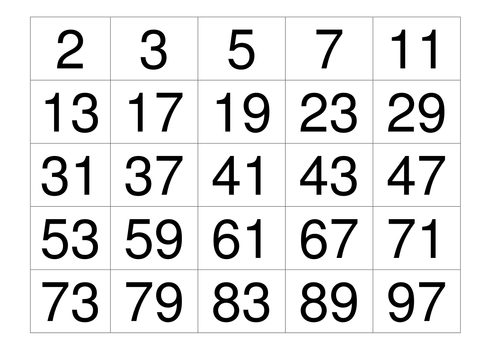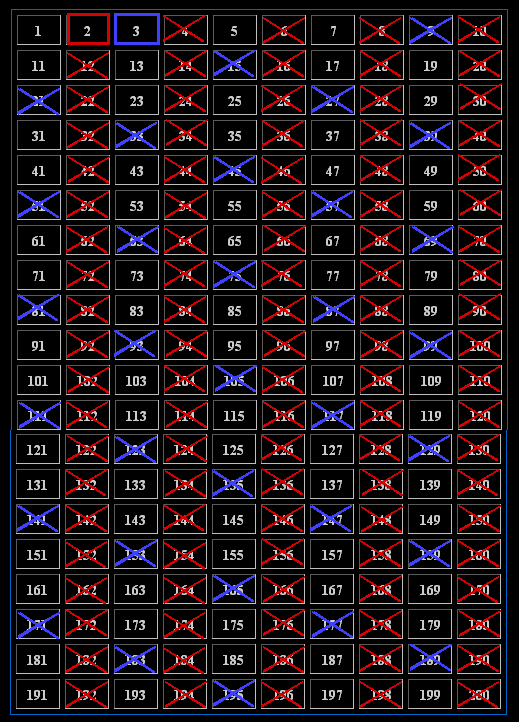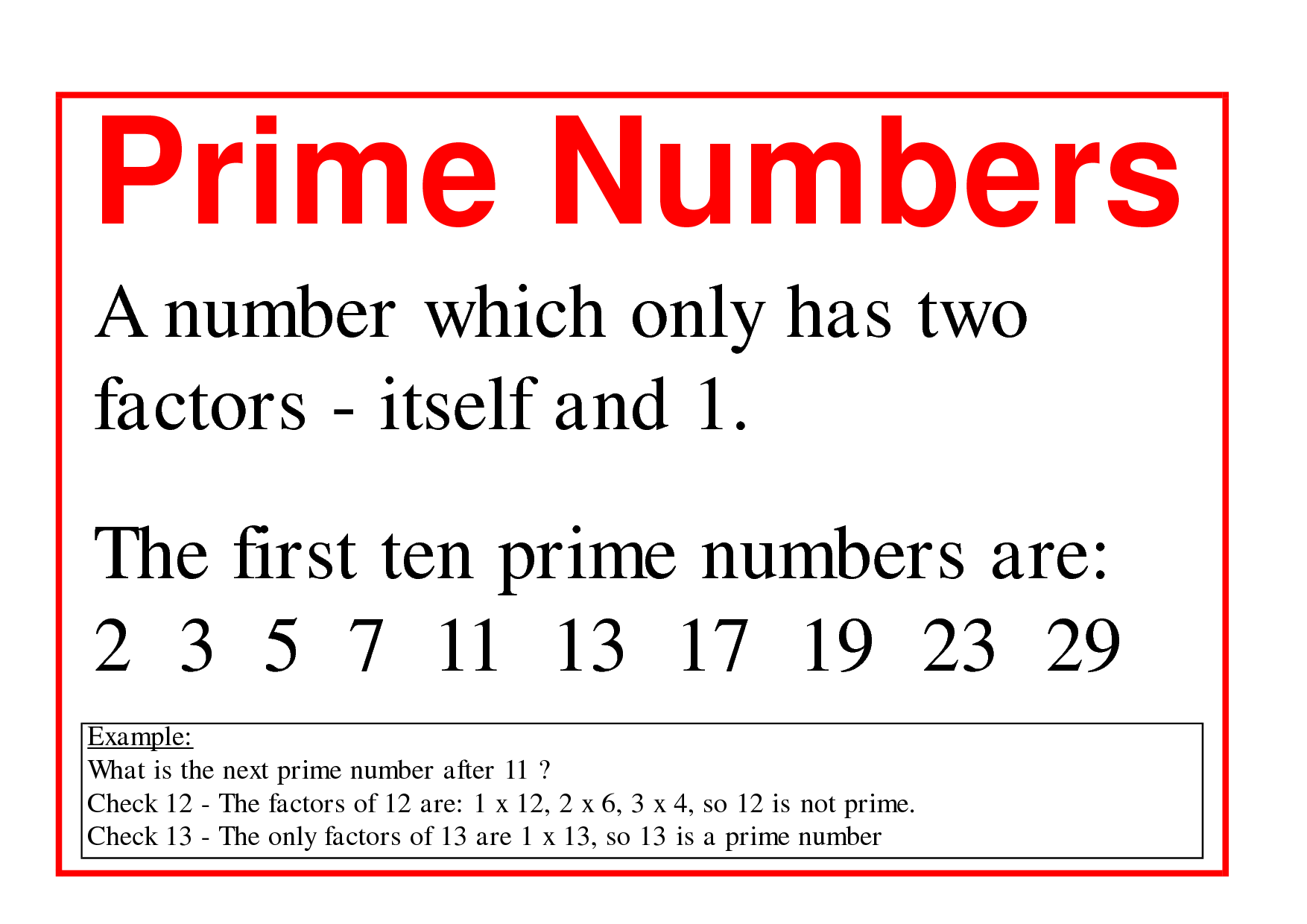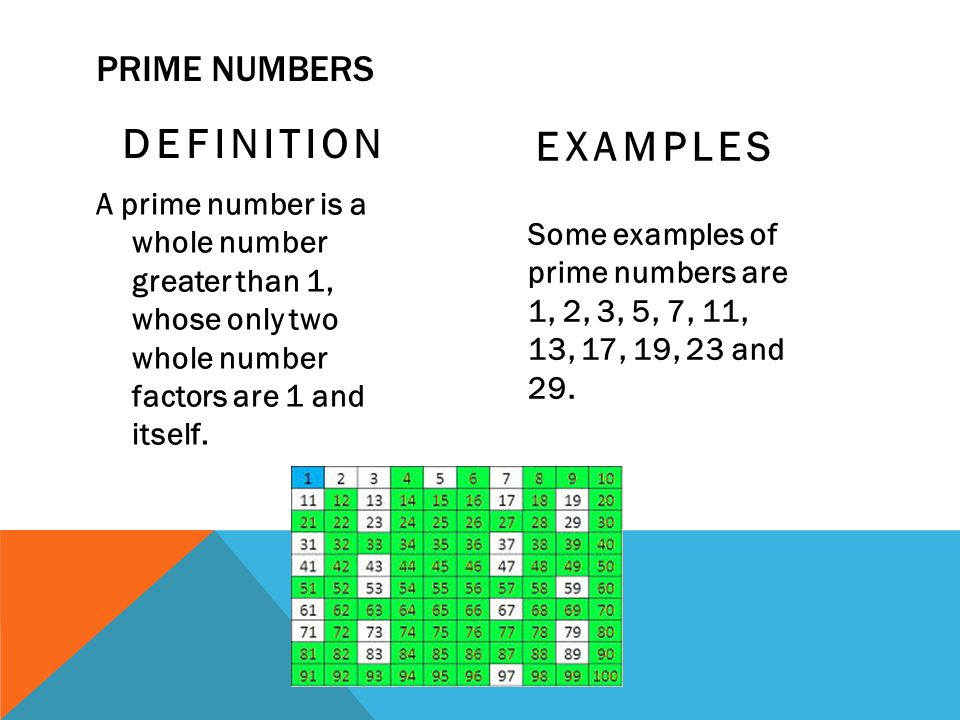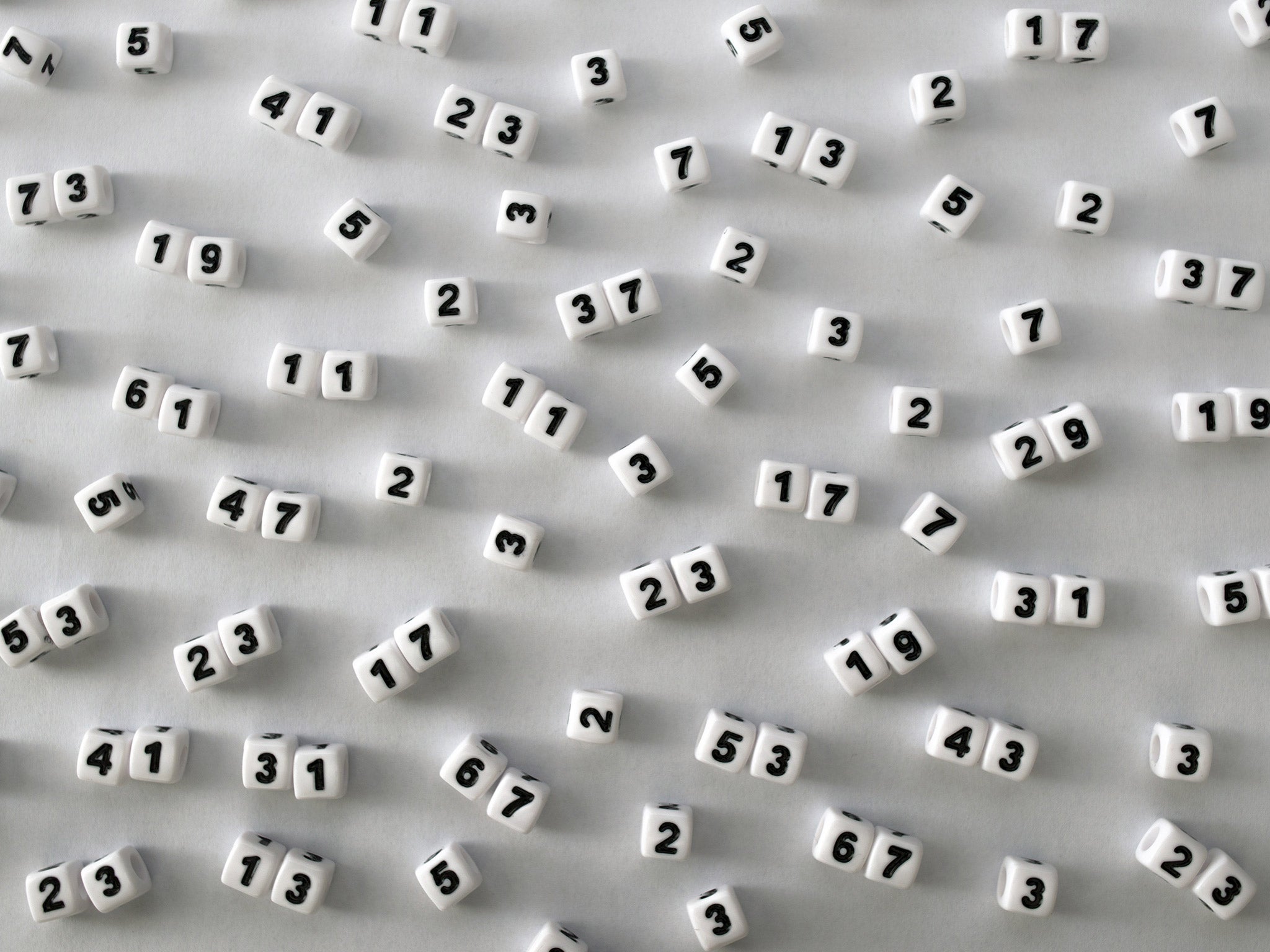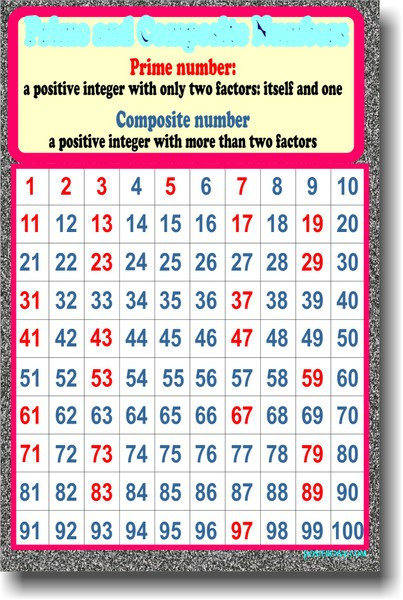Mathematics Prime Numbers
A prime number is.

Mathematics prime numbers. Decimal numbers that end in 0 2 4 6 or 8 are even and decimal numbers that end in 0 or 5 are divisible by 5. Only 15 works but we said to use whole numbers example. 3 5 7 11 9 is divisible by 3 and so on always dividing by a prime number see table below. A fermat number f n is of the form 2 m 1 where m is the n th power of 2 that is m 2 n where n is an integer.
For example the first 5 prime numbers are 2 3 5 7 and 11. Prime numbers are divisible only by the number 1 or itself. In contrast to prime numbers a composite number is a positive integer greater than 1 that has more than two positive divisors. In math prime numbers are whole numbers greater than 1 that have only two factors 1 and the number itself.
A whole number that can be made by multiplying other whole numbers. A prime number is a natural number greater than 1 that has no positive integer divisors other than 1 and itself. We cannot multiply 2 3 or 4 together to make 5. For example 2 3 5 7 and 11 are the first few prime numbers.
By contrast numbers with more than 2 factors are call composite numbers. Similarly when written in the usual decimal system all prime numbers larger than 5 end in 1 3 7 or 9. A fermat prime is a fermat number that is also a prime number. The concept of prime numbers is explained below which is.
2 is prime 3 is prime 4 is composite 22 5 is prime and so on. If we can make it by multiplying other whole numbers it is a composite number here we see it in action. With math numbers is a very interesting concept. The numbers that end with other digits are all composite.
Mathematicians make a major discovery about prime numbers. Is divisible by all the numbers from 2 to 101 each of the numbers in the new list is composite. There are different types of numbers such as prime number composite number and so on. Mersenne and fermat primes.
The first few known values of n that produce mersenne primes are where n 2 n 3 n 5 n 7 n 13 n 17 n 19 n 31 n 61 and n 89. For example 5 is a prime number because it has no positive divisors other than 1 and 5. Therefore every prime number other than 2 is an odd number and is called an odd prime. 2 is divisible by 2 101.
Here is a table of all prime numbers up to 1000. Prime numbers are numbers that have only 2 factors. If you dont get a whole number next try dividing it by prime numbers. All the proofs about large prime gaps use only slight variations on this high school construction said james maynard of oxford who wrote the second of the two papers.
6 can be made by 2 3 so is not a prime number it is a composite number. A whole number that cannot be made by multiplying other whole numbers.

